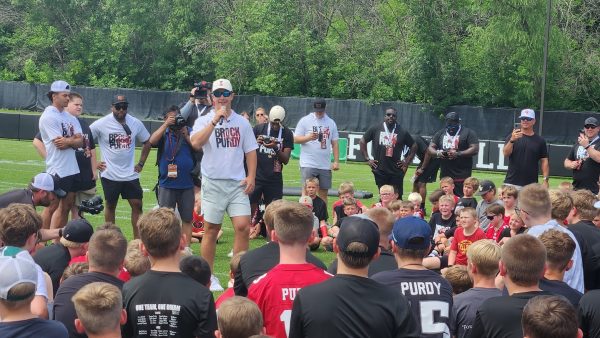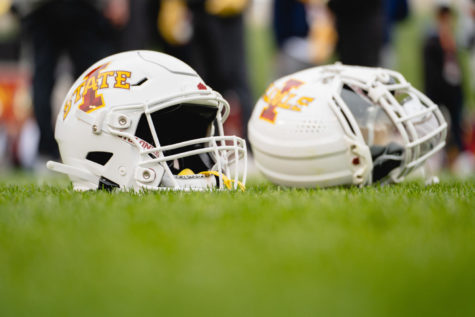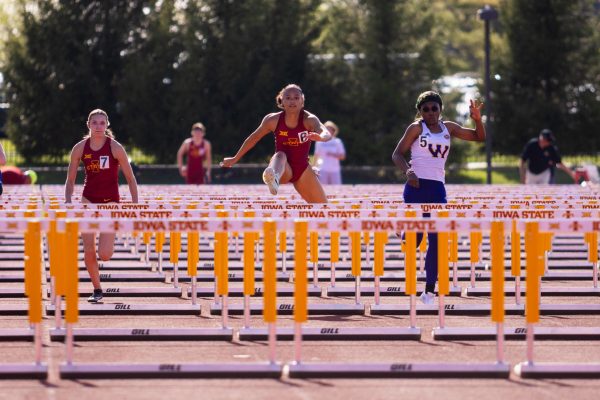ISU athletic department comments further on NCAA violations
April 4, 2013
After announcing April 2, 2013 that the ISU athletic department has entered into a summary disposition with the NCAA as a result of impermissible phone calls and text messages sent from 2008 to 2011, the department made additional comments on April 4 to attempt to clarify the timeline.
The department said ISU President Steven Leath notified the Iowa Board of Regents of the possible violations as soon as he became aware of the situation, which was on Jan. 31, 2012. This was just 15 days after he became president.
The release also said the athletic department formally signed off on the final NCAA report and legally entered into the summary disposition process on April 2, which was why Leath and ISU Athletic Director Jamie Pollard felt it necessary to “be as transparent as possible” by releasing the information.
The department felt the need to clarify its original statement on April 4 following what it called “sensationalized allegations about the institution and its staff” by a local media outlet.
While the release did not name any of the news outlets, it came on the heels of coverage and an editorial by the Des Moines Register on April 4.
“It was right to make public the fact of the infractions in advance of NCAA action, but the public should have been given the whole story,” the editorial said. “Important pieces are missing.”
The editorial went on to mention that the department has not made clear “which of the 18 sports were involved and which coaches or employees had the improper contact with recruits.”
Randy Evans, editorial page editor at The Register, said if the comment from the department refers to the April 4 editorial, it doesn’t change the opinion of the board.
“I don’t know that the statement or the quote from the university changes our view at all,” Evans said.
“Our point was that at a time when the universities are talking about the transparency of the universities, this sure seems to be a situation when more transparency was in order.”
During the three-year span from 2008-11, of more than 750,000 phone calls made during recruiting, 79 calls were made during the time in which coaches and their staffs were not allowed to call recruits. The department also found 1,405 calls that were made but did not connect, according to the original release.
The editorial from the Register said Iowa State fell short when it failed to go deeper into specifics.
“ISU demonstrated that commitment by dealing promptly with the violations, but it fell short of its obligation to the people of Iowa by failing to inform the public of which members of the coaching staff were responsible,” the editorial said.
Iowa State said the information released April 2 on the violations was released despite NCAA protocol that requires institutions not to comment publicly about any cases until they are fully resolved by the NCAA.
Tim Day, the university’s faculty athletics representative, said that the athletic department is having no further comment until the matter is complete. This is simply to comply with the NCAA.
“Our continuing [silence] is not about secrecy. (The entire report will soon be public.) It is because we are trying our very best to submit ourselves to the NCAA process,” Day wrote to ISU’s Athletics Council on April 2.
“As we will have ample time to show you, the investigation was exhaustive and painstaking; the depth and breadth of the data reported is literally unprecedented.”
Evans said if the “sensationalized” mention in the April 4 release from the athletic department is aimed toward the Register’s editorial, he disagrees.
“I don’t think the editorial was sensationalized at all,” Evans said.
“I certainly respect the right of the administrators at Iowa State to have a different view. I don’t see a basis for the sensationalism as it relates to the editorial.”
Iowa State said it will release the full NCAA report as soon as it has received the final version. A timeframe on how long it will take the NCAA to react remains uncertain.
















